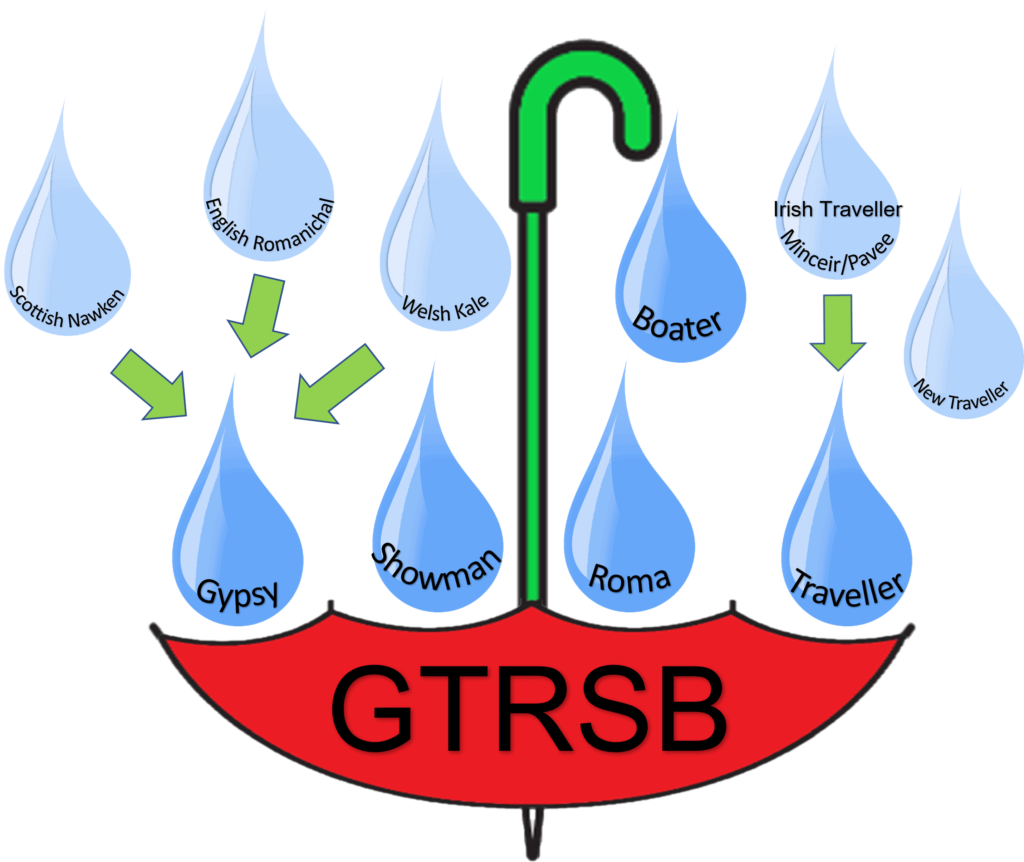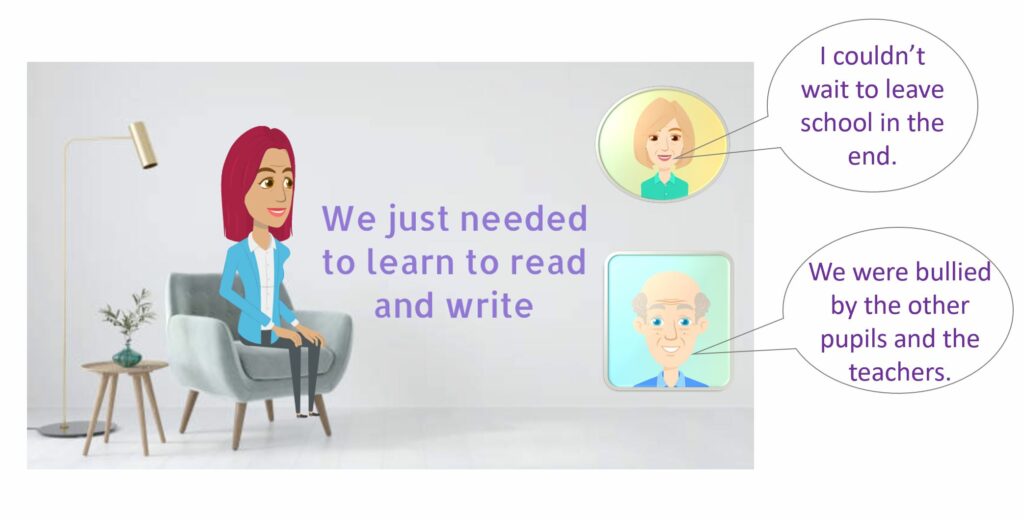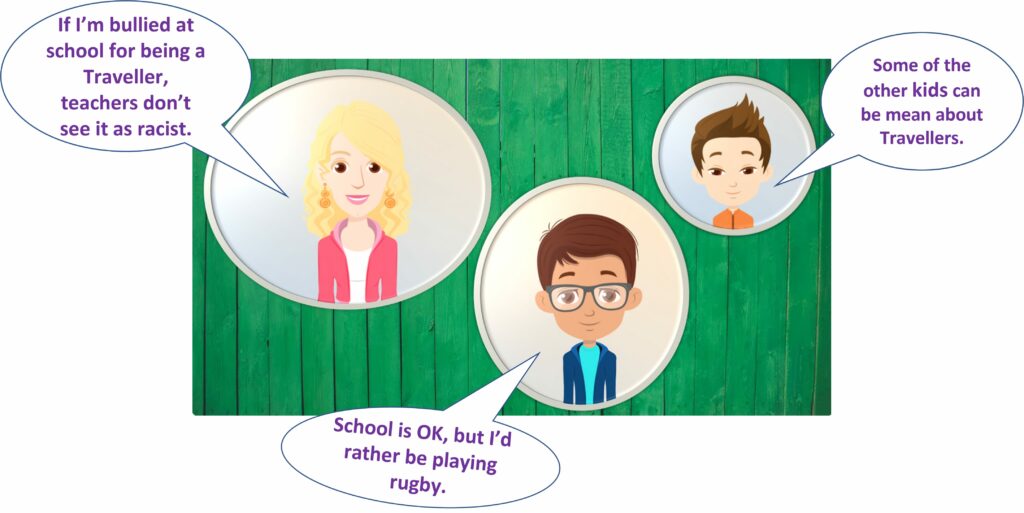By Marie Bowers, University of Glasgow, UK
Fellow physiologists, come travel with me. I’m Marie Bowers, a Romany Gypsy female physiologist. It feels strange to identify this way in a public forum. Why is this so?
A brief outline of Gypsy history in the UK might help you understand the reluctance of some to self-identify, the scale of the prejudice and the barriers we face.
Then we can see what scientists can do to bring about meaningful change- with our pilot project using physiology as a bridge to improve access to science education as an example of what can and should be done.
GTRSB, an umbrella term, refers to a group of communities – Gypsy, Traveller, Roma, Showman and Boater – that share similarities in family-centred, entrepreneurial, traditionally mobile culture. There are significant and important differences between the groups that can be explored on the Twitter account @GTRSBinSTEM.

Gypsies have been living in England since the 15th century, with the first recorded mention of us in a document from 1514; misidentified as Egyptians, it’s likely we originated from the Indian subcontinent.
Historically persecuted across Europe, every modern EU State has at some point had anti-Gypsy laws.
The Tinker Experiment in Scotland, a forced assimilation programme which placed Scottish Traveller families into sub-standard housing on encampments, began in 1917 and ran until the 1980s.
Irish Travellers have historically faced racism, casual and institutional, throughout their history. Poor provision of suitable sites to pitch trailers (caravans) being just the tip of the iceberg.
During the Second World War 250,000 Roma men, women and children were exterminated by the Nazis during the ‘Porajmos’, the Gypsy Holocaust. This is thought to have been approximately 25% of the Roma population in Europe at that time.
This history of persecution and exclusion from mainstream society leads many of us of GRT heritage to have a significant lack of trust in the state and its official bodies.
But why does this matter? All too many reports from Government bodies and GTRSB groups detail the lived experience of GTRSB community members and illustrate the shocking inequalities in terms of social, educational and health outcomes.
- We have high rates of illiteracy.
- We perform poorly in exams and often don’t complete formal education.
- GRT life expectancy is 10-12 years less than the general population.
- 42% of GRT people with have a chronic health condition, versus 18% of the general population,
- 1 in 5 GRT mothers will suffer miscarriage or still birth. (1 in 100 mothers in the general population.)
- We’re more likely to experience depression.
- We’re more likely to die at our own hand.
- We endure the ‘last respectable form of racism’* in the UK.(*Trevor Phillips, then Chair of the Commission for Racial Equality.)
There are many reasons for these disparities, though education is often key in improving social and healthcare outcomes.

During lockdown I spent hours video chatting with my parents and younger family members. Whilst I had a reasonably easy time at school, accepted by my teachers and peers, reasonable exam results and the expectation that I would attend university, the experiences of my parents and the youngsters in the family were eerily similar.
My parents quite enjoyed primary school and could attend around their families need to travel. But by the time they had reached secondary school, racially motivated verbal and physical attacks from their peers had become a near daily occurrence; they were singled out for inquisition if something had gone missing in class by their teachers, they weren’t encouraged to take part in activities, and by the age of 14, with basic literacy and numeracy, they had both left formal education.
Today’s GTRSB youngsters are still bullied by their peers and seen as other, perhaps driven by depictions of Gypsy, Roma, and Traveller (GRT) communities in mainstream media.
It’s virtually impossible to keep your child in mainstream education if you are travelling, something which Showman families deal with as much as GT families as many fairgrounds are open for much of the academic year.
We’re hopeful that the kids in our family will complete their education in school, but many don’t. Home schooling is increasing year on year for GTRSB youngsters, but support for these children and their families is patchy.
This is where The Physiological Society, and you, as physiologists can help.
Thanks to an Outreach Grant from The Physiological Society, I’m leading a pilot project aimed at engaging GTRSB children in physiology without othering them from their peers.
We seek to introduce these children to GTRSB adults working in their laboratories. The provision of positive role models from within their own communities, will hopefully spark their imaginations and encourage them to complete their education.

The project is called Science Travels, is set in the fairground and will involve children in physiological investigations co-designed with undergraduate life science students at the Universities of Glasgow and Aberdeen in the first instance.
In this way, we can open discussions on barriers to education for GTRSB groups with our students and staff.
But our institutions and learned societies need to engage in the debate and seek out GTRSB voices for inclusion in conversations on equity, diversity and inclusion policies, parity of opportunity and barriers to inclusion for GTRSB individuals.
Our institutions need to mark important dates: GRT History Month every June, Roma Holocaust Memorial Day on 2 August, World Funfair Month each September.
In this way, physiologists can begin to effect social change for a group of often forgotten communities.
References:
House of Commons Women and Equalities Committee: Tackling inequalities faced by Gypsy, Roma and Traveller communities. Seventh Report of Session 2017–19. Published on 5 April 2019.
https://publications.parliament.uk/pa/cm201719/cmselect/cmwomeq/360/360.pdf
**This report includes a range of important and informative references.**
Clark, C., & Greenfields, M. (2006). Here to Stay: the Gypsies and Travellers of Britain. University of Hertfordshire Press. https://www.herts.ac.uk/__data/assets/pdf_file/0008/137249/UHP-2016-catalogue-web.pdf
D’Arcy, Kate (2014) ‘Travellers and Home Education: Safe Spaces and Inequality’, London: Trentham Books
Scandal of The Tinker Experiment: demands for apology over Scotland’s treatment of Gypsy Travellers, The Herald, 22 December 2019. https://www.heraldscotland.com/news/18117533.scandal-tinker-experiment-demands-apology-scotlands-treatment-gypsy-travellers/
